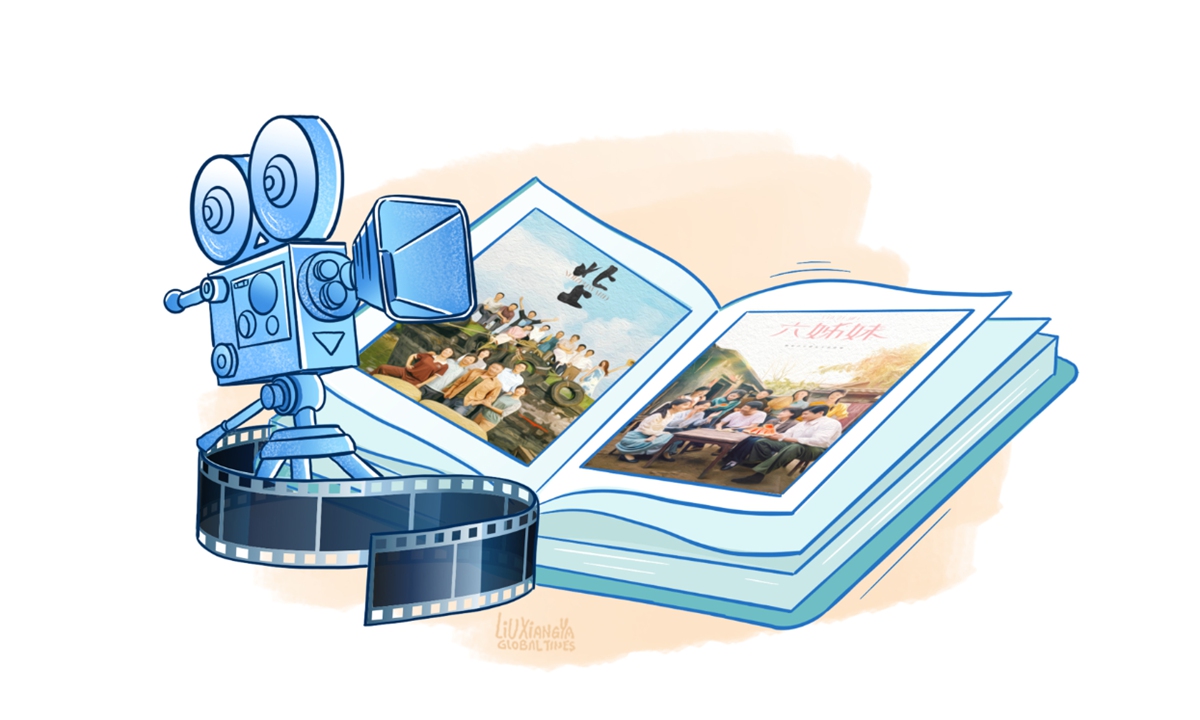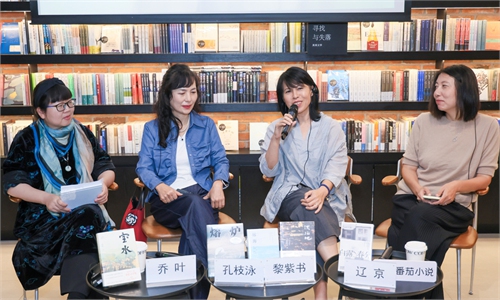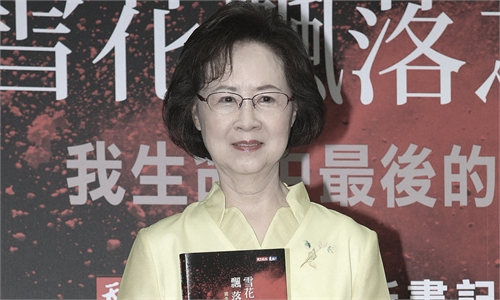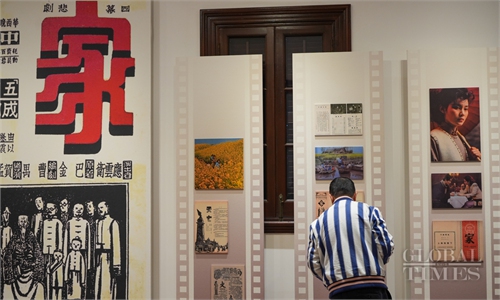ARTS / CULTURE & LEISURE
Literature adaptations captivate young viewers

Illustration: Liu Xiangya/GT
"It would be a grave misunderstanding to our audience to assume they rely solely on emotional stimulation from micro-dramas to pass the time. In fact, the growing trend of serious literary fiction adaptations in film and television works reflects the diverse demands of Chinese viewers - especially the younger generation - who seek depth, complexity, and aesthetic value in their viewing experience," Zhao Dongling, a renowned scriptwriter who garnered a new wave of attention with the TV series adaptation Northward, told the Global Times, noting that she is happy to see the revival of serious literature adaptations presenting cultural feasts to Chinese audiences.
As Northward, adapted from Chinese writer Xu Zechen's novel which won the Mao Dun Literature Prize, wrapped up on China Central Television (CCTV) on Friday, production is now underway for another series based on Zhu Jue (lit: Protagonist), a novel by acclaimed author Chen Yan that also won the Mao Dun Literature Prize. Since the immense success of TV series adaptation A Lifelong Journey in 2022, the past three years have seen a significant increase in adaptations of Mao Dun Literature Prize-nominated and winning works across China's major video platforms. Adapting serious literature, particularly those award-winners, has become a new trend in the film and television industry.
The trend has been driven by the impressive performance of these adaptations after release. The latest example Northward, which aired on both online video platform iQIYI and on traditional broadcast station CCTV, captured the attention of both audiences and critics alike. On the night of its premiere, this series ranked first in viewership for its time slot.
The popularity of the show online has translated into a strong boost for offline cultural tourism. This series, centered around the Grand Canal, deeply explored the regional culture of East China's Jiangsu Province, resulting in a 40 percent increase in tourist numbers in the cities along the canal during its premiere week, along with a staggering 215 percent year-on-year surge in homestay bookings, according to local media Yangtse Evening Post.
This trend raises an important question: Why are adaptations of literary fiction resonating so strongly with modern audiences now, particularly younger viewers?
Classic serious literary works possess both intellectual depth and relevance to the times. In comparison to the simplistic content of online novels, the high-quality content of serious literature is an inherent advantage, the Guangming Daily noted.
Zhao, the veteran scriptwriter, told the Global Times that, after communicating with netizens via her social media account, she found audiences today are looking for more than just emotional catharsis and light entertainment. They crave thought-provoking stories, immersive experiences, and works that satisfy their deeper aesthetic and intellectual needs.
Film and television production had been dominated by adaptations of online novels, which often prioritize fast-paced plots and fantastical settings over realistic or meaningful storytelling. While these adaptations have enjoyed widespread popularity, their over-reliance on formulaic narratives and fantasy themes has led to audience fatigue. Viewers, especially younger ones, are increasingly drawn to content that resonates with their real-life experiences and challenges their perspectives. In this context, adaptations of serious literary fiction provide a refreshing alternative, according to Zhao.
By delving into complex human emotions, social realities, and universal themes, these serious literary adaptations offer a richer and more rewarding viewing experience. Many young people, after finishing a series, turn to reading the original work itself. Within the director and screenwriter's storytelling alongside the original author's narrative, they experience the power and emotional impact of literature, thereby building their own value systems and spiritual worlds, Zhao noted.
Serious literature adaptations are also a win-win outcome for both literature creation and production of TV and film works. Shi Wenxue, a veteran Beijing-based culture critic, told the Global Times that in today's fast-paced digital age, shorter and more visually engaging content formats such as micro-dramas and short videos have saturated the market. Amid this landscape, the adaptation of literary fiction into film and television works offers a compelling way to amplify the influence of serious literature.
Through the medium of film and television, the complex themes and layered narratives of serious literary fiction can be made more accessible and emotionally resonant for modern audiences. A well-crafted adaptation can achieve a harmonious balance between artistic depth and mass appeal. When handled skillfully, literature and entertainment can complement each other, creating a win-win scenario for both creators and audiences, according to Shi.
Despite their growing appeal, adapting literary fiction into film and television works is no easy task. One of the greatest challenges lies in striking the right balance between preserving the literary integrity of the source material and meeting the entertainment demands of a diverse audience demographic. Zhao embraced the opportunity to engage with younger audiences on social media to gather and incorporate diverse feedback into her creation process. The screenwriter expressed her eagerness to hear these perspectives, acknowledging the generational gap and her desire to understand the current concerns of young people.
"Adapting serious literary fiction demands a deep understanding of audience preferences and a commitment to preserving the cultural and artistic value of the original work," Shi also said.
The author is a reporter with the Global Times. life@globaltimes.com.cn




